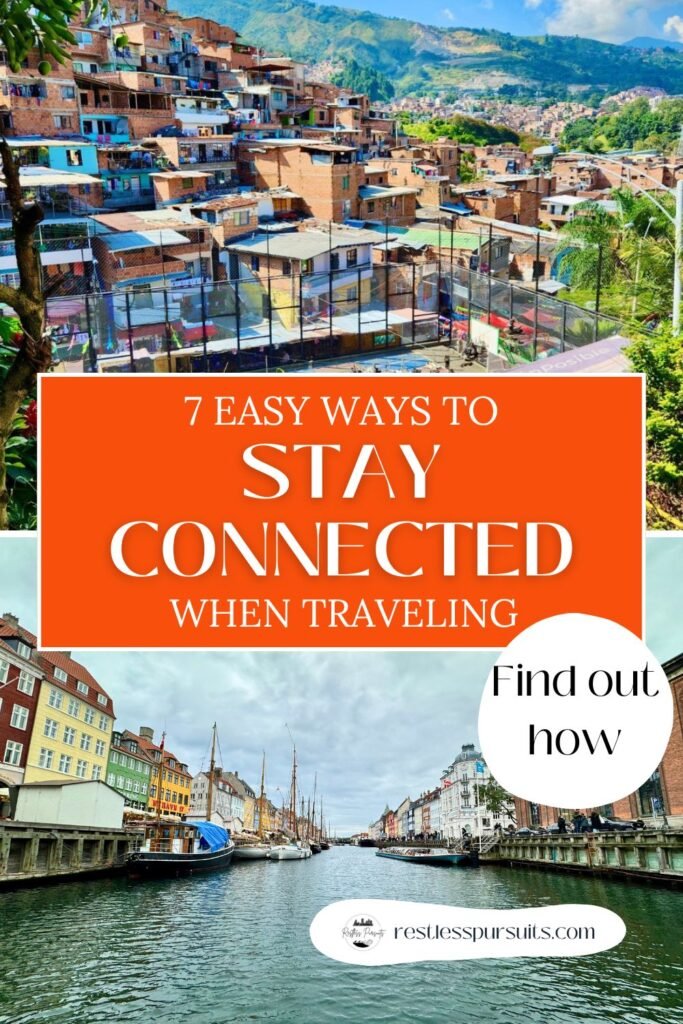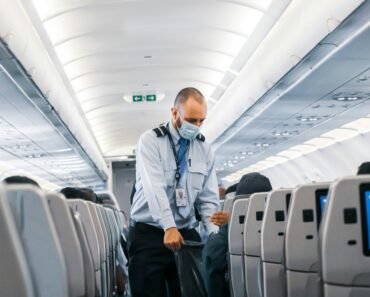Have you ever found yourself grappling with the challenge of staying connected while traveling? Whether it’s maintaining contact with loved ones, conducting business, or simply staying in the loop with world events, staying connected is crucial.
Over the years, I’ve gathered a few tips and tricks to help make this task less daunting. So, let’s talk about the best ways to stay connected while traveling.

This image is property of media.worldnomads.com.
Assessing Your Needs Before You Leave
Before you set off on your journey, it’s important to evaluate your communication needs.
Understanding Your Connectivity Requirements
Are you someone who needs constant connectivity, or can you get by with periodic check-ins?
This is the point where you decide if your travels require advanced planning with your service providers or if simply hopping on available Wi-Fi networks will suffice.
Making a Estimated Data Usage Chart
To assess what kind of connectivity plan you might need, consider listing your usual online activities alongside an estimate of your data usage. Here’s a sample chart for easy reference:
| Activity | Estimated Data Usage Per Hour |
|---|---|
| Emails | 1-MB |
| Web Browsing | 60-MB |
| Streaming Music | 150-MB |
| Video Calls | 350-MB |
| Social Media | 100-MB |
Understanding your data requirements helps in effectively choosing the best plan or portable device suitable for your needs.
Phone Plans and International Roaming
Local SIM Cards
Purchasing a local SIM card is often an economical way to stay connected.
Many countries offer prepaid options that include both data and call allowances.
Before buying a local SIM, make sure your phone is unlocked to accept a different SIM card.
International Plans from Home Providers
Some service providers offer convenient international plans.
These plans may come at a premium but can save you the time and hassle of switching SIM cards.
Contact your provider to know more about available international options.
Wi-Fi Calling
Many service providers now offer Wi-Fi calling features that don’t require cellular signals.
This is an effective way to stay connected without worrying about international call rates.
Make sure to activate this feature beforehand and check for any additional costs it may entail.
Mobile Hotspots and Personal Hotspots
Purchasing a Mobile Hotspot Device
A mobile hotspot is a portable device that allows you to create a Wi-Fi network wherever you have a cellular signal.
These are especially useful for group travels where multiple devices need to connect to the internet.
When purchasing a mobile hotspot, look for ones that support the data bands in the countries you will be visiting.
Using Your Phone as a Personal Hotspot
If purchasing a separate mobile hotspot device seems cumbersome, you can use your phone as a personal hotspot.
This feature is generally available in most smartphones nowadays and can connect multiple devices simultaneously.
| Mobile Hotspot Device | Pros | Cons |
|---|---|---|
| Dedicated Device | Longer battery life, better signal | Additional cost, more to carry |
| Phone as Hotspot | Convenient, no extra cost | Drains phone battery quickly |
Accessing Wi-Fi
Public Wi-Fi Networks
Public Wi-Fi networks are common in cafes, airports, libraries, and hotels.
While convenient, they can also be a gamble in terms of security and reliability.
It’s wise to avoid sensitive transactions like online banking on public Wi-Fi networks.
Portable Travel Routers
To enhance the reliability of public Wi-Fi, consider using a portable travel router.
These devices can amplify weak signals and provide better range and speed.
They are also useful for connecting multiple devices to a single Wi-Fi network with more privacy.
Subscription-Based Wi-Fi Services
Several airlines, train services, and even tourist spots now offer subscription-based Wi-Fi services.
These can offer more reliable connectivity compared to free public Wi-Fi and are often worth the investment for smoother communication during your travels.
This image is property of images.squarespace-cdn.com.
VPN: Securing Your Connection
Why Use a VPN?
Traveling often means relying on public or semi-secure networks. A Virtual Private Network (VPN) encrypts your internet connection, making it more secure.
This is especially important when dealing with sensitive information or conducting financial transactions.
Choosing the Right VPN
There are numerous VPN services available, ranging from free to premium.
Despite free services being tempting, premium options often provide better security, faster speeds, and more server locations worldwide.
Research and select one that suits your security needs and budget.
Messaging Apps and Social Media
Best Messaging Apps for International Communication
Apps like WhatsApp, Skype, and Viber are great for staying in touch internationally.
They are usually free and offer features like texting, voice calls, and video calls.
The only requirement is a stable internet connection.
Using Social Media for Updates
Social media platforms such as Facebook, Twitter, and Instagram can keep you connected with a wider audience.
You can share updates, photographs, and moments from your travels, keeping everyone back home in the loop.
Offline Messaging Features
Some apps like Google Maps and WhatsApp offer offline features.
Google Maps allows you to download maps for offline use, and WhatsApp can store messages to be sent when you’re back online.
These features can be incredibly useful in areas with inconsistent connectivity.

This image is property of www.oneworld365.org.
Email and Cloud Services
Setting Up Your Email for Travel
Ensure your email client is set up to sync offline.
This allows you to read and draft emails without needing constant connectivity.
You can also set up auto-responders informing people that you might be slow in replying due to travel.
Cloud Storage Services
Services like Google Drive, Dropbox, and iCloud are perfect for storing important documents and photos.
They allow you to access files from anywhere with an internet connection, providing a fallback if your devices are lost or damaged.
| Cloud Service | Free Storage Limit | Best For |
|---|---|---|
| Google Drive | 15 GB | Overall use, sharing docs |
| Dropbox | 2 GB | Easy file-sharing |
| iCloud | 5 GB | Apple ecosystem users |
Travel-Friendly Gadgets
Power Banks
A reliable power bank is indispensable for keeping your devices charged. In the event that your phone dies, your ability to stay connected comes to a halt.
When choosing a power bank, consider its capacity (measured in mAh) to ensure it can fully charge your devices multiple times.
Universal Adapters
Different regions have different plug types, and investing in a universal adapter ensures you can charge your devices no matter where you are.
Some advanced models even come with USB slots, negating the need to carry multiple chargers.
Noise-Canceling Headphones
While not directly related to connectivity, noise-canceling headphones can greatly improve your travel experience, especially during long flights or train rides.
They help you focus during work calls or enjoy downtime without distractions.

This image is property of i1.wp.com.
Social Media and Content Sharing
Real-time Updates
Utilizing platforms such as Instagram Stories or Facebook Live allows real-time updates to keep your friends and family in the loop.
These features are perfect for sharing quick updates, scenic views, or any exciting moments you encounter on your journey.
Blogging and Vlogging
If you are passionate about sharing your travel experiences in more detail, consider starting a travel blog or vlog.
Platforms like WordPress for blogging or YouTube for vlogging can help you document and share your adventures comprehensively.
Apps to Enhance Connectivity
Communication and Connectivity Apps
Certain applications can streamline staying connected.
Applications like Slack can help with professional communication, while apps like Google Hangouts or Microsoft Teams offer versatile communication solutions.
These apps are designed to facilitate seamless communication whether you’re working remotely or staying in touch with loved ones.
Traveler-Specific Apps
Apps tailored specifically for travelers can make a big difference.
Google Translate can help break language barriers, and apps like TripAdvisor can provide invaluable insights on amenities that offer free Wi-Fi or other connectivity options.
Offline Navigation Apps
Apps such as Maps.me and OsmAnd allow offline navigation by downloading maps onto your device, which is particularly useful in areas with poor network connectivity.
These apps ensure you never get lost, even without an internet connection.

This image is property of cyberguy.com.
Final Tips for Seamless Connectivity
Keep Backup Options
Having a backup plan is always a good idea. Carrying an extra SIM card, a secondary device, or even pre-downloading necessary information can be a lifesaver if you lose connectivity unexpectedly.
Stay Updated on Local Regulations
Different countries have varying regulations regarding internet use, SIM registration, and data privacy. Staying informed about these laws can help you avoid any legal hassles during your trip.
Regularly Sync Data
Regularly syncing your data, such as photos and documents, to cloud storage ensures you’ll never lose important information. Make it a habit to back up your data whenever you have a strong internet connection.
Summary
In conclusion, staying connected while traveling doesn’t have to be a complex or stressful endeavor.
By understanding your unique connectivity needs, leveraging modern technology, and taking a few preparatory steps, you can ensure that staying connected is one less thing to worry about during your adventures.
From mobile hotspots to cloud services and travel-friendly gadgets, there’s no shortage of tools to help you maintain a seamless connection with the world while exploring new horizons.






